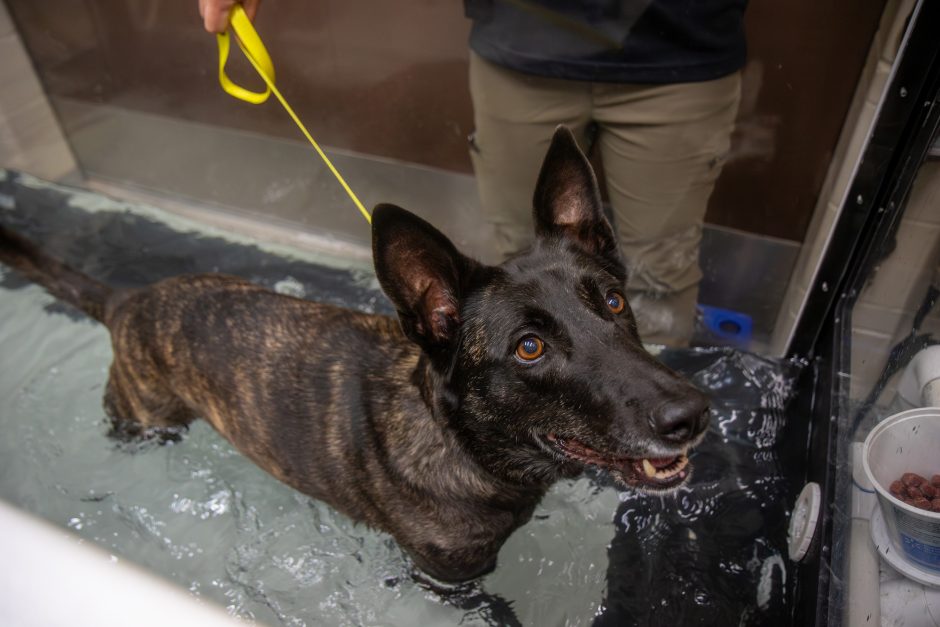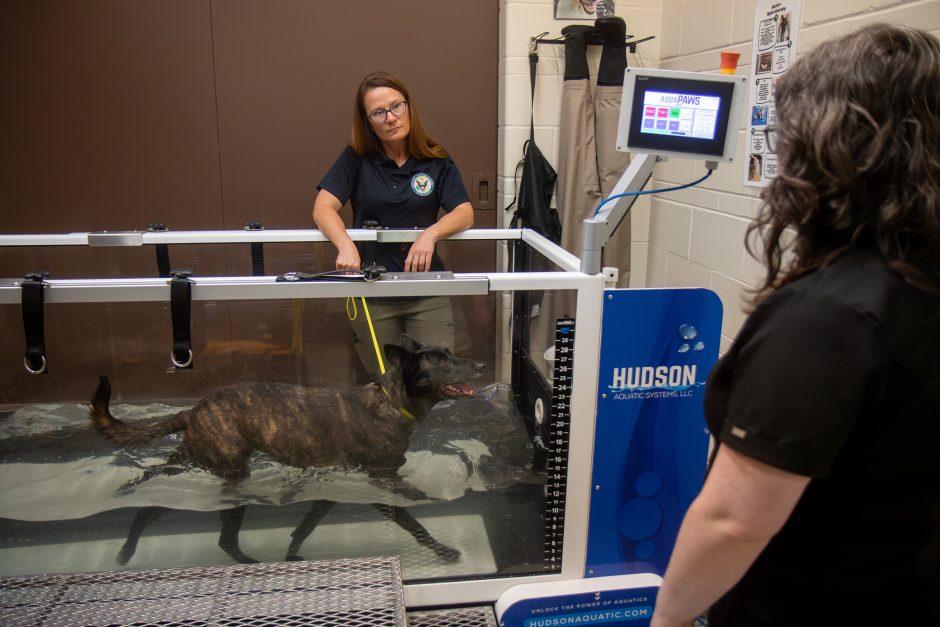
June 12, 2025
Photos by Karen Clifford
When search-and-rescue teams deploy, they need every member — human and canine — to be at their best. For Kathleen Kelsey, a handler with Missouri Task Force One, that means keeping her partner, Oma, healthy and ready for anything. A seven-year-old Dutch Shepherd, Oma has responded to high-profile emergencies, including the 2023 Hawaii wildfires and recent hurricanes in North Carolina, navigating hazardous terrain to help find disaster victims.
Highly-trained working dogs like Oma face intense physical demands that go far beyond the typical pet’s experience. Long hours, dangerous environments and physically complex tasks require peak performance. That’s where the University of Missouri College of Veterinary Medicine’s Sports Medicine and Rehabilitation Service comes in.
Bess Pierce leads Mizzou’s Sports Medicine and Rehabilitation Service and works directly with handlers like Kelsey to keep working dogs mission ready.
“These dogs are elite athletes, and we treat them that way,” Pierce said.
For Oma, that performance-focused approach has been critical. Oma has mild lower back pain, and specialized imaging tools were utilized to accurately identify the underlying problems. Pierce then designed a customized plan for Oma, including tailored workouts and therapeutic treatments.
Kelsey said Mizzou’s support has extended Oma’s working life and effectiveness. “I’m grateful to have access to Dr. Pierce and her team,” Kelsey said.

The life of a search-and-rescue dog
Kelsey’s passion for search and rescue began in the wake of 9/11, when reports of dogs working at Ground Zero highlighted their importance in disaster response. “I knew I wanted to work with dogs, and after 9/11, there was a huge increase in awareness about the need for trained search-and-rescue dogs,” she said.
Since 2003, Kelsey has trained and worked with six search-and-rescue dogs, each partnership built on trust, endurance and dedication.
According to Pierce, endurance, strength and the ability to navigate unstable environments are crucial for effective search-and-rescue dogs.
“These dogs need to perform precise movements in unpredictable settings,” said Pierce. “We help them with proprioception, which is their body’s ability to know where it is in space and adjust accordingly, and build strength, so that they can support their bodies well and avoid injuries.”
Working dogs and beyond
While Oma’s care is tailored for search-and-rescue, Mizzou’s Sports Medicine and Rehabilitation Service supports a wide range of canine patients — from national dock-diving champions to post-surgical family pets to elder dog mobility and comfort.
“We apply the same science and technology across the board,” Pierce said. “Every patient deserves to move, work or play without pain.”
For handlers like Kelsey, the collaboration with Mizzou ensures their dogs stay healthy, resilient and ready to respond — no matter the mission.
Read more from the College of Veterinary Medicine


